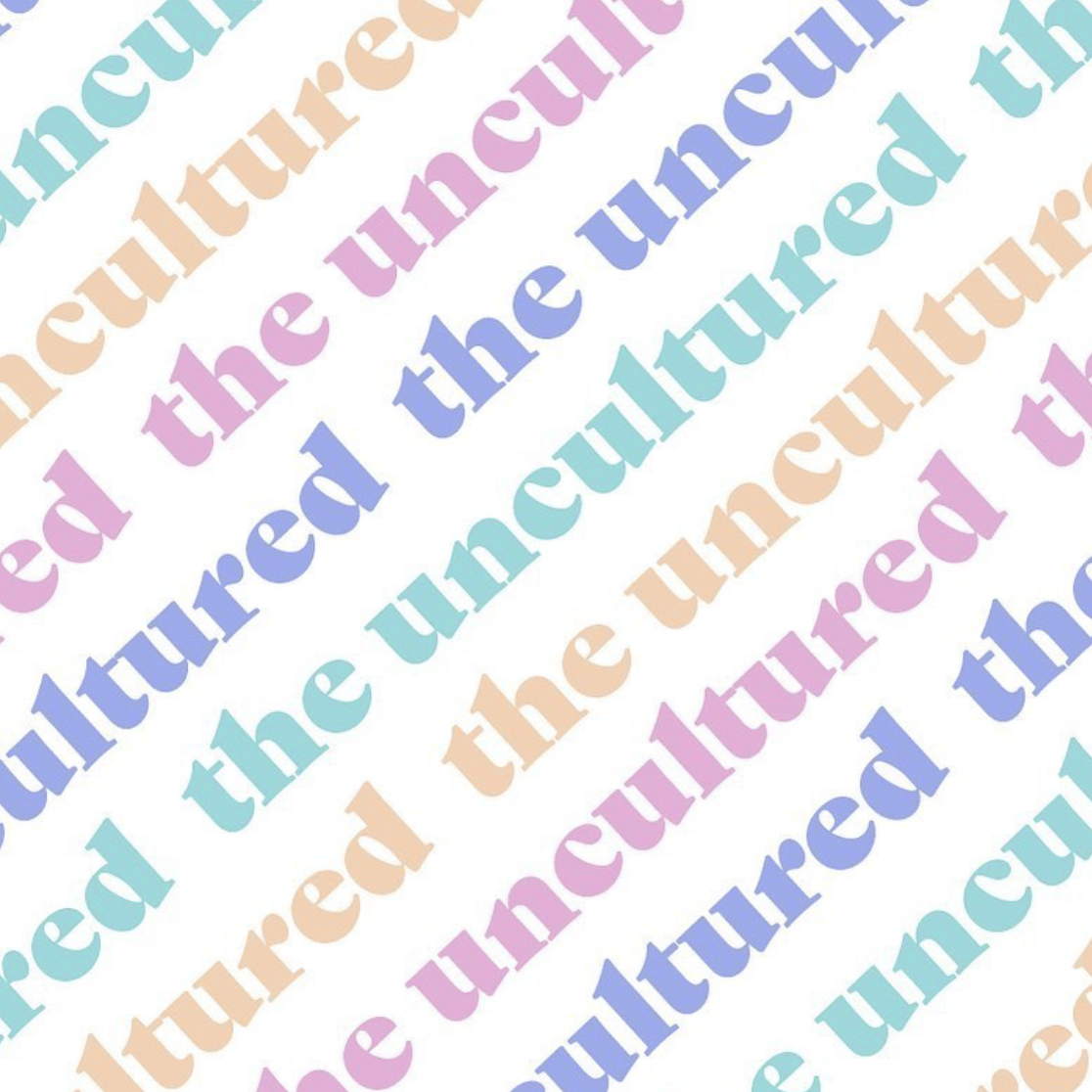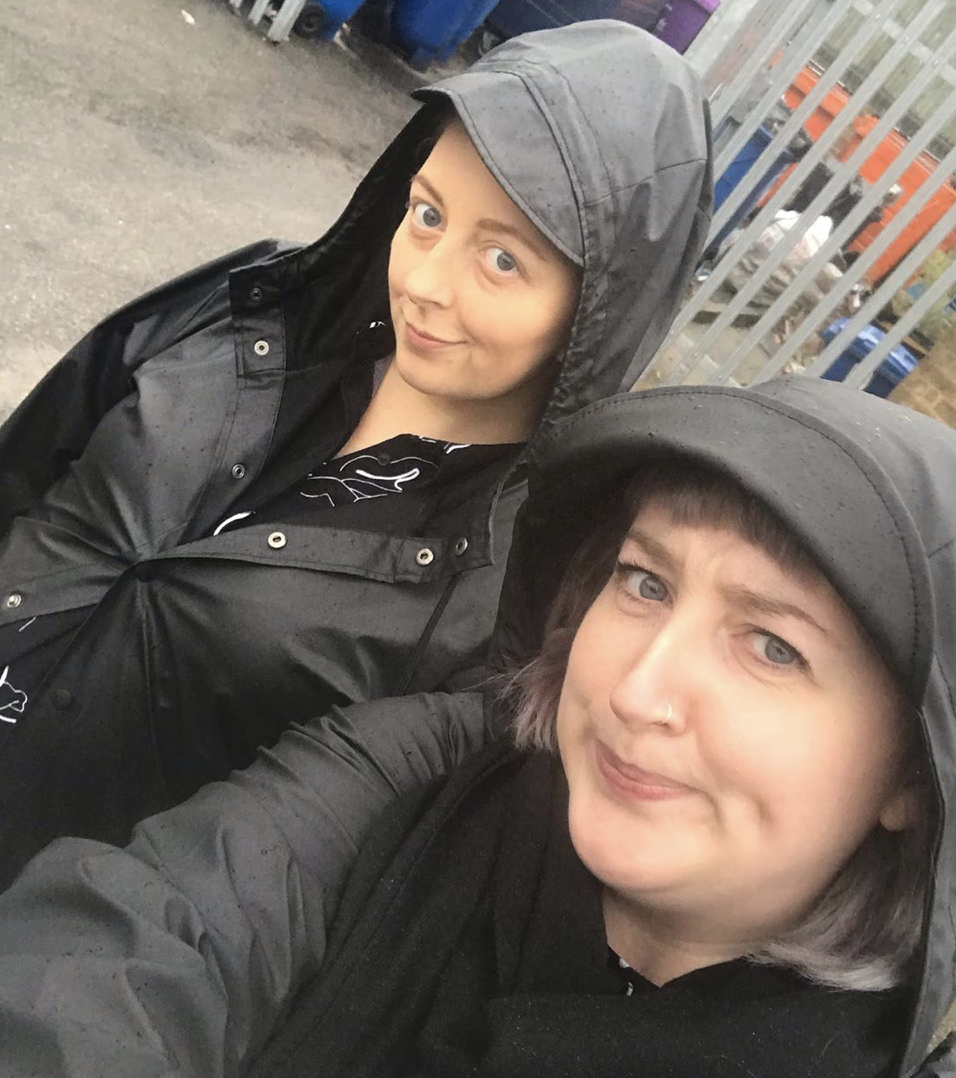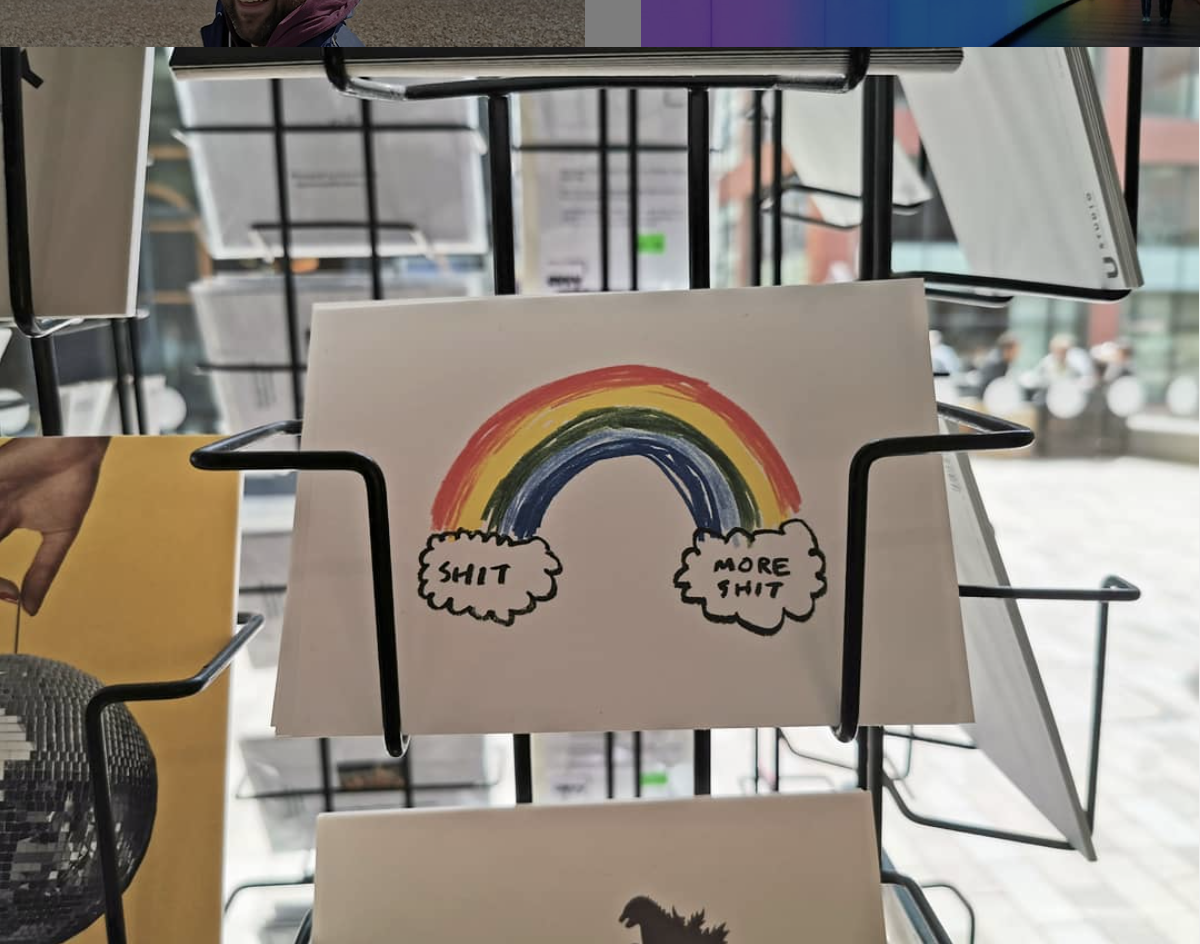In keeping with the name of their Freelancer Task Force sub-group, independent producers Ashleigh Bowmott and Laura Sweeney of The Uncultured talked with us about the need for radical, collectivist change, and the discourse surrounding freelancers in the arts
“A pandemic is the perfect time to launch a new arts producing company, right? … Right?”
In the early weeks of lockdown– in the absence of any meaningful connection with my past or future employers, any of the organisations for whom I’ve worked myself to the bone over the last five years– I started wondering whether maybe I’d imagined an entire industry in my head.
My work had disappeared; replaced by a new day job, where I felt like an unrecognisable version of myself. Other freelancers I had worked with regularly were applying for entry-level jobs in other industries, filing for Universal Credit, re-writing their CVs. There was an overwhelming feeling that we were parting ways, that this would all last a lot longer than anyone was brave enough to admit. The ongoing weekly redundancy announcements from theatres around the UK which followed, and the continuing lack of a meaningful response from the government with regards to the financial cliff-edge faced by countless organisations and freelancers in the performing arts, only heightened that feeling of powerlessness. That feeling that we were all just bricks in the side of a collapsing building.
The idea that over 200,000 other theatre freelancers were, and still are, experiencing the same feelings of disconnection and isolation, is hard for me to fathom. Maybe it’s because I struggle to recognise and articulate those things when I feel them myself, maybe it’s because in the months since those early weeks, I have managed to find tiny morsels of solidarity in occasional Whatsapps and Zoom calls with former colleagues. I’ve found encouragement in, and tried to keep up to date with, the work of newly-formed advocacy groups like Freelancers Make Theatre Work, the Freelance Task Force, as well as cross-industry associations like the Alliance of Associations and Professionals for Theatre and Live Events (AAPTLE). But listening to Artistic Directors talking about ‘mothballing’, and reading news stories about potential future contracts which would place the financial burden of Covid-19 on the self-employed, that feeling of utter powerlessness, and the inevitability of any positive change unravelling, manages to weasel its way back into my head.
Enter Ashleigh Bowmott and Laura Sweeney– two independent arts producers, whose refusal to accept the idea that freelancers are anything other than a majority force with the potential to affect massive change, feels like an ice bath for my tired, sore brain. Having worked together for around a year, towards the end of 2019 they sought to formalise their working partnership by forming a company. Undeterred by the national lockdown and arrival of Ashleigh’s baby, they forged ahead with The Uncultured, a producing company within which they aimed to continue to play with and interrogate convention, through performance and live art.
“Often our projects reject traditional definitions of taste, culture and art in order to create a space for social change. These marginal and radical practices are joyful, sorrowful, painful and soulful, but always impactful and powerful.”
Having also put themselves forward to be representatives for the Yard Theatre on Fuel’s Freelance Task Force– which brings together reps from over 100 arts organisations to foreground the needs of the self-employed community– Ashleigh and Laura documented their thinking on taking up the position as a job share, and the contradictions they encountered on their decision-making process.
Their insistence on the potential for this moment to be a turning-point in the ongoing struggle against discrimination and insularity in UK theatre, is nothing if not hopeful. In their words below, you’ll hear them mention their own cynicism and pessimism about the industry—don’t let that distract you; there is no denying the innate hopefulness of their work, and their beliefs. And their acknowledgment that all of this is an ongoing project makes me think of Audre Lorde. “Revolution is not a onetime event”.
Laura: “Things weren’t exactly rosy for us as freelancers before Covid, working within a racist, sexist, ableist and financially unjust system, so trying something new was necessary anyway”
Ashleigh and Laura were a natural choice to discuss the complexity of starting something new in a moment of upheaval—on choosing which course of action to take. Their work is not without precedent, and I’m hopeful about the potential it has to inspire meaningful, widespread change, across an industry that could do with a bit of burning.
Ash is an arts producer and facilitator who has made a purposeful choice to integrate the politics and practicalities of work and life. She combines work as an artist, curator, producer and educator as a vehicle for developing methodologies of care and resistance. She has a PhD in collaborative artistic practices, which considers the intersectionality of creating artworks between peoples, species and levels of sentience. Ash has delivered talks, workshops and artworks worldwide. She is a mother of 2 and lives on a boat in London.
Laura is a creative producer working with performance and live artists to develop strategies for creating new work and sustainability, with artist development at the core. She works with artists in a holistic way, ensuring that care is embedded in their shared practice. She is Deputy Chair of the Board for Home Live Art. She is currently part of the British Council GENERATE programme that connects UK and US producers, curators and programmers. She is also a current recipient of a Jerwood bursary to focus on training opportunities.
“Here we are, enjoying the glamorous life of a producer, in front of the bins in the rain”
We love the way you wrote about your thinking behind starting The Uncultured, as well as deciding to apply for and join the Freelance Task Force. How have you found the experience of working on them so far?
AB: The Uncultured is our way of working together with a little cape of collectivity on. We’ve worked together for a while now, so in our day-to-day nothing much about our working practices has changed, but the idea behind being decidedly open about our collectivism allows us a sort of buffer. I think in reality, just like everything else dying under capitalism there are just hoards of individuals scrapping around, desperately trying to survive. Working together is a bit of a reaction to this I guess. We’re in a small way dependent on one another to achieve anything. We can be empathetic and responsive to each others lives outside of work. We have to have a lot of trust in one another as sort of representatives of one another’s voice or opinion as that’s how any form of collectivism is perceived. To me that makes us better at our work: we bring two skillsets and a whole new skillset that is formed when those are combined; we have capacity above and beyond what we could individually commit to; and our everyday work is a little less lonely and leads to far fewer existential crises.
LS: Joining the Freelance TaskForce has been an interesting experiment – with over 150 freelancers involved I’m sure you can imagine it’s a bit like herding cats. It proves how wide the sector is and even though we are all freelancers, we’re finding that we often have very little in common in our approaches to work, hopes for the sector and how we think that should happen. It’s a huge plus point, our difference, but it does pose some challenges in how to ensure everyone can feel heard and also for us to feel like we’ve achieved something that doesn’t necessarily have to be agreed by everyone. We’re halfway through now and it feels like we’re getting somewhere – especially in our subgroup called “Burn it down and start again”… we’re invested in thinking about real change, probably impossible change, but finding the time to think about the seemingly impossible is a valuable exercise in optimism.
With the creative ecology of the UK already being as under-funded and insular as it is, prior to the impact of Covid-19, there’s undoubtedly overwhelming need for structural change in the Arts and in how large institutions relate to their freelancers, audiences, and communities. What I’m wondering is, how do you get past the initial uncertainty around starting a new course of action– the question of ‘is this the right thing to be doing now, and am I doing it for the right reasons’?
LS: it’s fair to say that things weren’t exactly rosy for us as freelancers before Covid, working within a racist, sexist, ableist and financially unjust system, so trying something new was necessary anyway – Ash and I used this time to think a bit more clearly about what we want to do and I’m sure other people are in the same situation as well. The right thing to be doing now is different for everyone. Some people have capacity to think about how structural change in the sector needs to happen, whilst others are just trying to keep their heads above water. For us, working together, giving us a bit of a buffer, felt like the right move to make sure we can keep going. To be honest, I was on the verge of quitting pre-Covid so this feels like a lifeline in saving our practices and allowing us space to support others in one of the toughest times we’ve collectively experienced in our careers…as well as acknowledge we are in a GLOBAL PANDEMIC.
AB: There’s something in the ‘is this the right thing’ bit of this question about imposter syndrome…which I guess could also just be called “Being a Womxn syndrome”, where you feel that structures aren’t set up for you (because they’re not) and preclude you (because they do). Having very little to lose, cheers Covid, and having someone you trust with common interests gives you a bit of confidence in your decisions. It’s another perk of collectivism.
What do you think is the best course of unified action for creative freelancers who don’t want things to return to the pre-Covid ‘normal’?
AB: There have been so many things wrong I don’t really know where to start. The levels of nuance in designing a whole new model are beyond my intelligence. But people centred co-design, feminist models of economics, amplification of marginalised voices and horizontal organisational structures probably add up to a good start. In my wildest dreams a truly unified action would be if all freelancers withdrew their labour completely. Every single one of us, just as the industry were allowed its precious “reopen”. No artists, no actors, barely any designers, barely any arts workers, just loads and loads of gatekeepers with no point to their bloody gate. All labour withdrawn, all participation withdrawn, a very obvious absence which would prove the necessity of our presence. Of course there are loads of problems with this, not only that it financially hits those withdrawing their labour the most, but also that it would just quickly perpetuate the exploitation of younger workers for whom this would present an obvious opportunity but without any support or structure.
A step down from that might be full accountability for all the unpaid labour that we do, so that we could calculate, even based on minimum wage, how much all this unpaid work might be worth. Naming that, and naming the jobs that don’t get paid, might help us hint at some of the problems. My hunch is that anything that seems like advocacy, care, relationship building, training and finding more work will be the stuff that doesn’t get valued (paid for). This will disproportionately affect marginalised voices making the lack of value attributed to these tasks just another prop to systemic injustice.
A really small thing that we could all do would just be shifting our discourse. Recognition that freelancers are the workforce majority in this sector at least linguistically gives us power. I keep thinking about that and the potentiality within it gives me a naughty little power surge.
LS: What she said.
“We collaborate to draw upon our sunny dispositions and optimistic outlook”
We’re also grappling with the necessary evil of having to work for free, while trying to eliminate the need for it. How do you balance working within the system to bring about change, versus wanting to burn the whole thing to the ground?
LS: I think unless you want to burn the whole thing to the ground you won’t be able to make change within the system, because you’re already starting from a place of compromise. Nearly all of this activism is unpaid, and if you want to commit to doing that, you have to question where you want to put your energy. At the start of Covid, we had a conversation where we said ‘do we want to work for free to support 1 person, or do we want to work for free to support hundreds if not thousands’. We chose the latter, which meant that we shifted our focus to creating resources to help people access the support available in the existing system, but we also advocate for proper, burn-it-down change alongside this. Change takes time and in that awkward in between period we acknowledge that people still need support, so doing both feels necessary for us.
AB: I like how Lola Olufemi writes about this sort of thing in her book Feminism, Interrupted: Disrupting Power. She explains that ‘only work that seeks to shake and unsettle the very foundations of the sexist state is feminist work’ (p. 35). Interestingly for this conversation, she proposes collectivism and working towards common interests as a powerful method of approaching this. I think shaking and unsettling the system is the work. This takes time, but it doesn’t take away from how valuable that incremental work is and allows us to recognise that this is work in progress. We can vision, labour and then manifest, but basically always towards the aim of getting down to those foundations and totally changing it.
And lastly, on a lighter note, what’s something else you’ve started during lockdown that you hope to continue?
LS: I adopted a dog in May so we’ve been enjoying a more PG life. Ash and I have also started to take off Monday’s and Friday’s during this time to try and minimise the amount of unpaid work we do, which feels like a huge achievement and a big wet kiss to our mental health – we have to make sure we keep valuing ourselves going forwards.
AB: Lockdown has been a strange one for me because I had a baby just as it started. Having a newborn is all about staying indoors and washing your hands a lot, so in many ways I just felt like lots of people joined me in solidarity. When I’ve not been looking after two small kids I’ve been working, almost entirely for free. But lol, this isn’t necessarily on a lighter note so far…The thing I’m grateful for is that because I’ve been working from home so much I’ve been able to keep exclusively breastfeeding my daughter for longer than I probably otherwise would have been able to. Were it not for lockdown, shlepping across London to some pointless and unpaid meeting would probably have stopped me doing this. Now we all know we can just do it on zoom, boob out and pen in hand. I hope that people make it easier for those who cannot attend physically to still be part of conversations at distance. We’ve proved we can do it now so there’s no excuses.
You can keep up with The Uncultured at their website, and make sure to check out their Twitter for some amazing resources on arts funding, job opportunities, and creative networks. Follow Ashleigh Bowmott and Laura Sweeney to see more of their empowering, world-shaking work.




Recent Comments